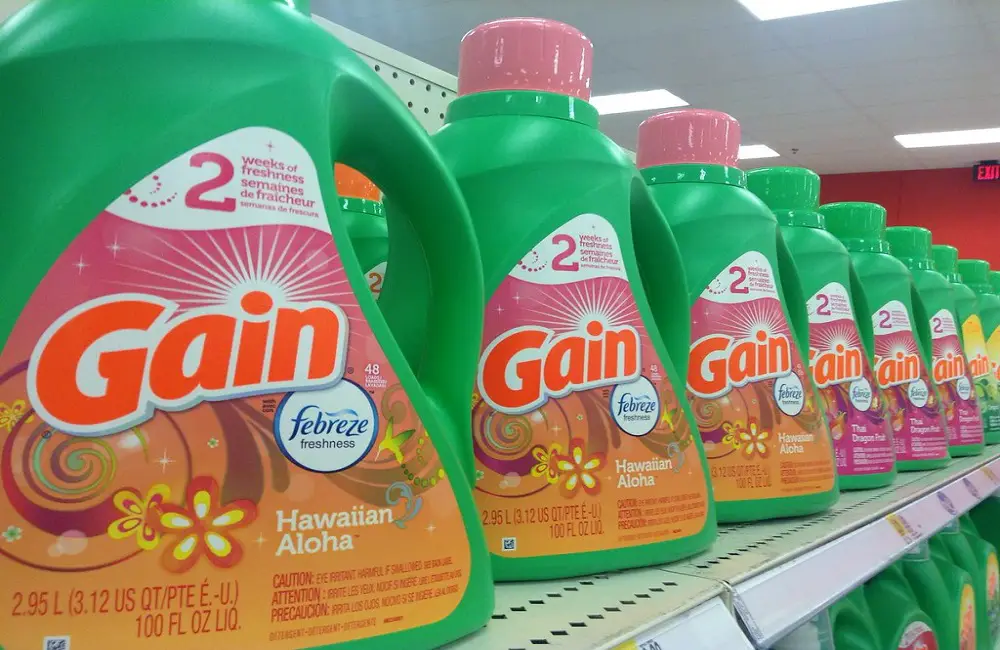It could be tempting to grab the nearest cleaning supply when you run out of dish soap. Laundry soap is a typical replacement that individuals may think about. Is this, however, a secure and reliable substitute?
Let’s study this topic to find out if you can wash dishes with laundry soap, what the risks are, and what options you could have.
The Chemistry of Cleaning
We must examine the chemistry underlying these goods in order to determine whether laundry soap is appropriate for use in dishwashing. Dish soap and laundry detergent are made to dissolve grease and filth, but their formulations change to focus on various kinds of grime.
- Dish Soap: Dish soaps are designed to be gentle on the skin and effective at cutting through food residues and grease. They are formulated to be easy on the hands since dishes are often washed by hand.
- Laundry Detergent: Laundry detergents, on the other hand, are formulated to remove a variety of stains from fabrics. They often contain enzymes that break down proteins, starches, and fats found in clothing stains. They can also include brighteners and fragrances that are not food-safe.
Potential Risks of Using Laundry Soap for Dishes
- Toxic Ingredients: Ingredients in a lot of laundry detergents are unsafe to consume. These can contain enzymes, bleach, and other substances that clean clothing well yet are toxic if consumed. These hazardous materials run the risk of staying on the plates after being cleaned with laundry soap and being later consumed.
- Residue: Since laundry detergents are meant to be used in washing machines, it is expected that they would be completely rinsed away. It could be challenging to fully rinse off soap residues when washing dishes by hand, potentially leaving behind hazardous residues.
- Taste and Smell: Laundry detergents are often heavily scented to make clothes smell fresh. These strong fragrances can be unpleasant when transferred to dishes and could affect the taste of your food. Additionally, the taste of leftover detergent on dishes can be quite off-putting.
- Skin Irritation: Laundry detergents can be harsher on the skin compared to dish soap. Prolonged exposure to laundry detergent can cause irritation, dryness, and allergic reactions, especially if you have sensitive skin.
Safe Alternatives to Dish Soap
If you find yourself out of dish soap, there are several safer alternatives you can consider:
- Baking Soda: Baking soda is a mild abrasive that can be used to remove food residue without posing the same hazards as laundry soap. It can be readily rinsed off and is safe to eat.
- White Vinegar: Vinegar is acidic and can help cut through grease and disinfect dishes. Mix it with water for an effective cleaning solution. The smell of vinegar dissipates quickly, so your dishes won’t retain the scent.
- Lemon Juice: Lemon juice can act similarly to vinegar. It’s naturally antibacterial and can help dissolve grease. Plus, it leaves a pleasant, fresh scent.
- Castile Soap: Dishwashing is one of the many cleaning jobs that castile soap, a vegetable-based soap, is safe for. It doesn’t contain any harsh chemicals and is kind to skin.
- Dishwasher: If you have a dishwasher and are out of dish soap, running your dishes through a hot water cycle without detergent can still remove a lot of the food residues. This isn’t ideal for very greasy dishes, but it can work in a pinch.
When It’s Absolutely Necessary
Here are some suggestions to reduce dangers in case you have to wash dishes with laundry soap in an emergency:
- Dilution: Use a very small amount of laundry soap diluted in a lot of water. This reduces the concentration of harmful chemicals and makes it easier to rinse off.
- Rinse Thoroughly: Make sure to rinse each dish thoroughly under running water to remove as much soap residue as possible.
- Avoid Fragrances: If possible, use unscented laundry detergent to avoid transferring strong scents to your dishes.
- Check Ingredients: Use a detergent that is free from bleach and other harsh chemicals. Some eco-friendly or sensitive skin formulas might be less harmful, but this is still not ideal.
Conclusion
Despite its seeming convenience, washing dishes with laundry soap is generally not a good idea because of the possible health hazards and the difficulty of fully removing soap residues. Instead, think about more secure options like vinegar, baking soda, lemon juice, or Castile soap. These can thoroughly clean your dishes without putting you at danger of poisoning yourself.
If you have to use laundry soap in a pinch, make sure it’s diluted and well rinsed off. It’s advisable to refrain from this behavior whenever you can, though. You can avoid having to make a dangerous decision by keeping an extra supply of dish soap on hand or by using everyday objects that are safe to use for dishwashing. Thus, the next time you’re going to grab the laundry soap, stop and consider these safer alternatives.

